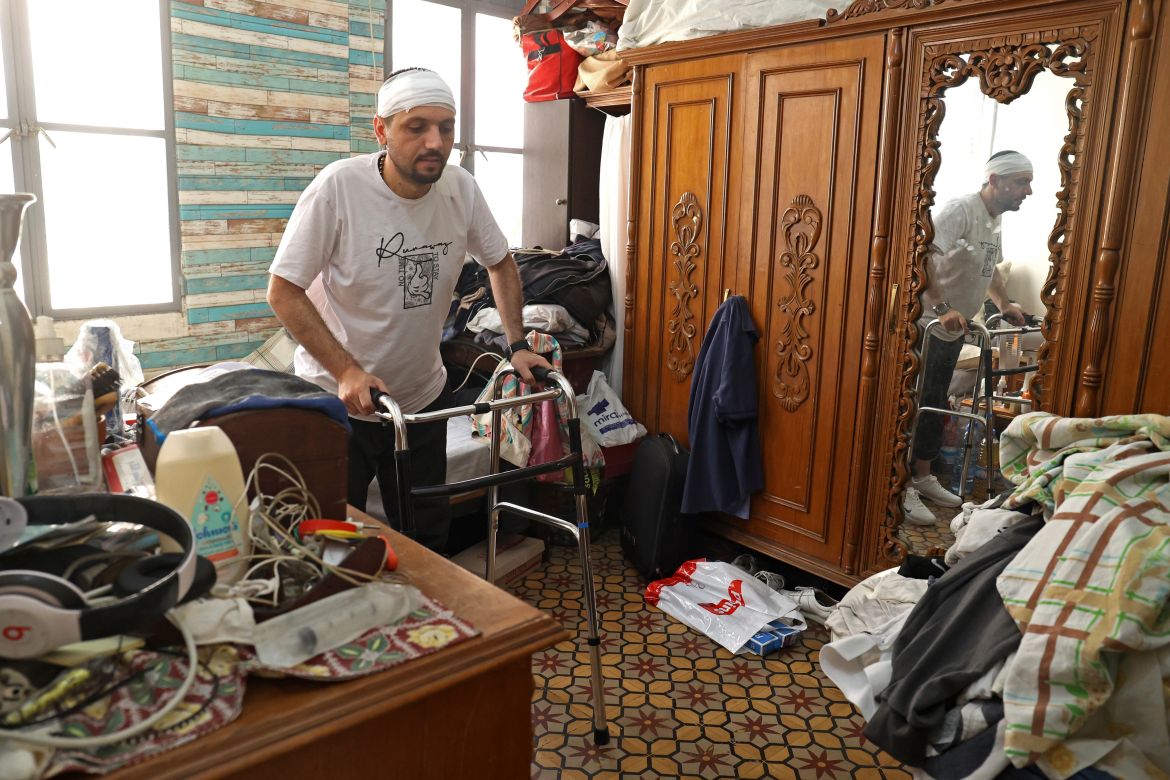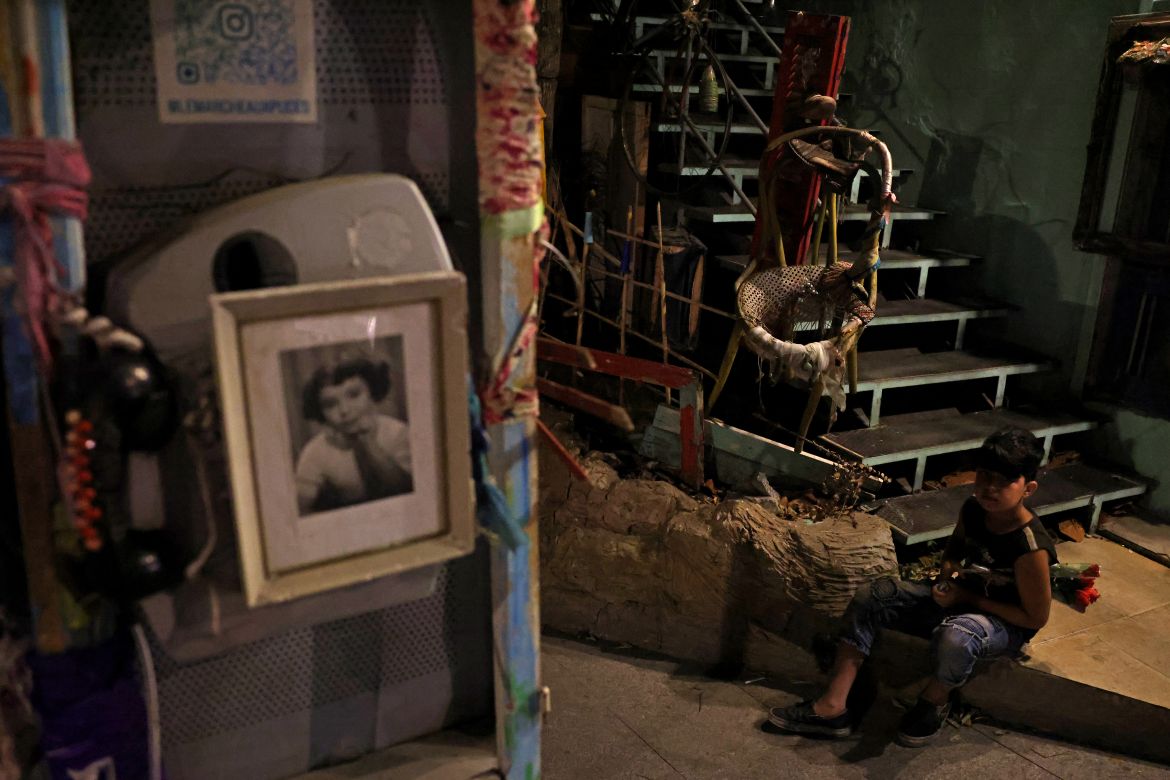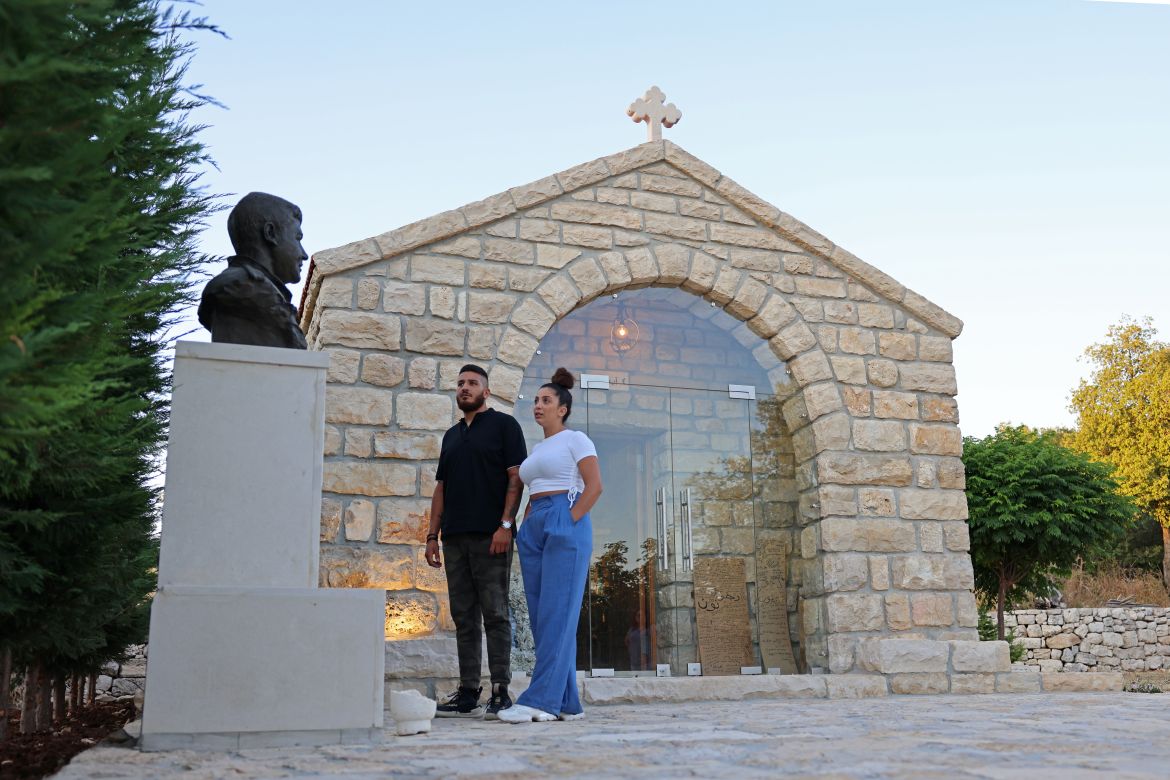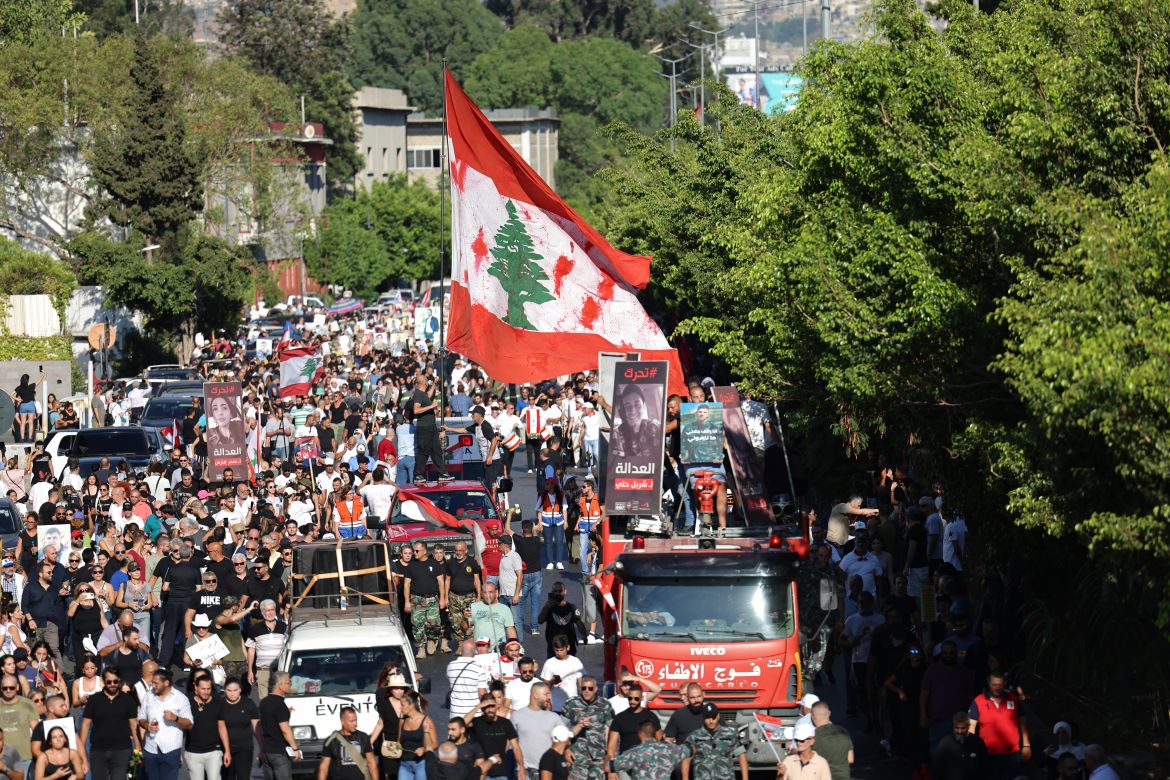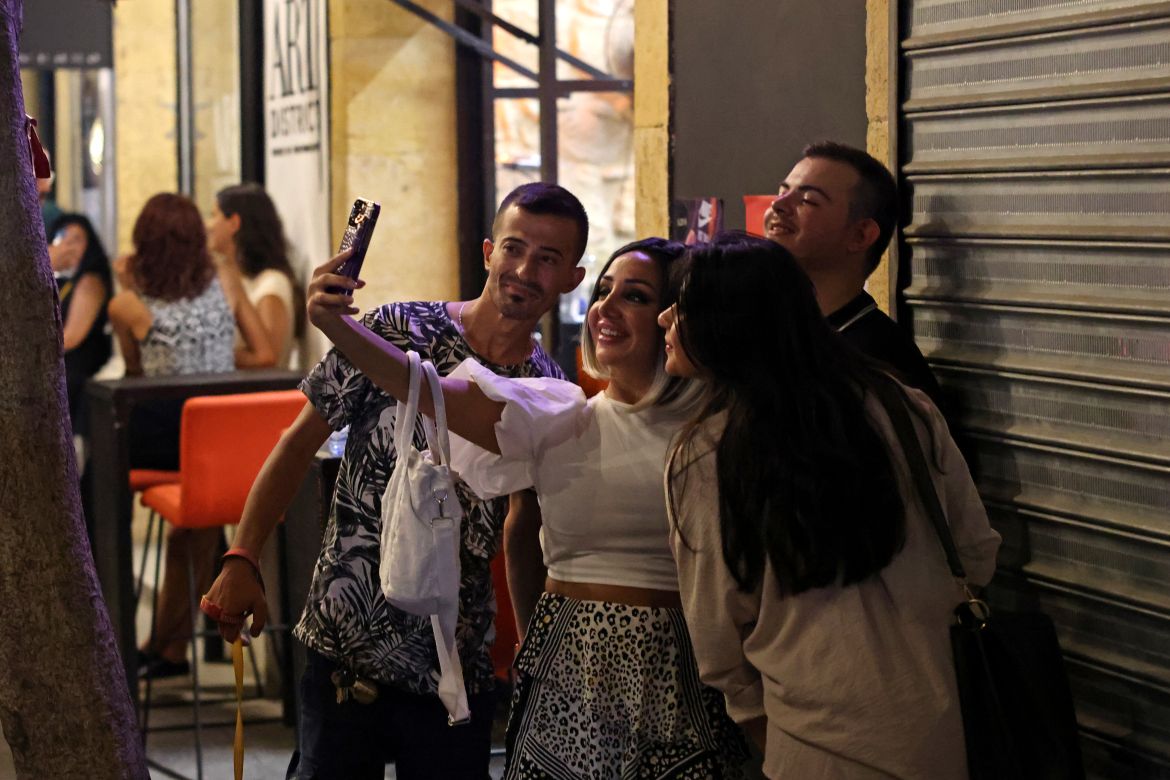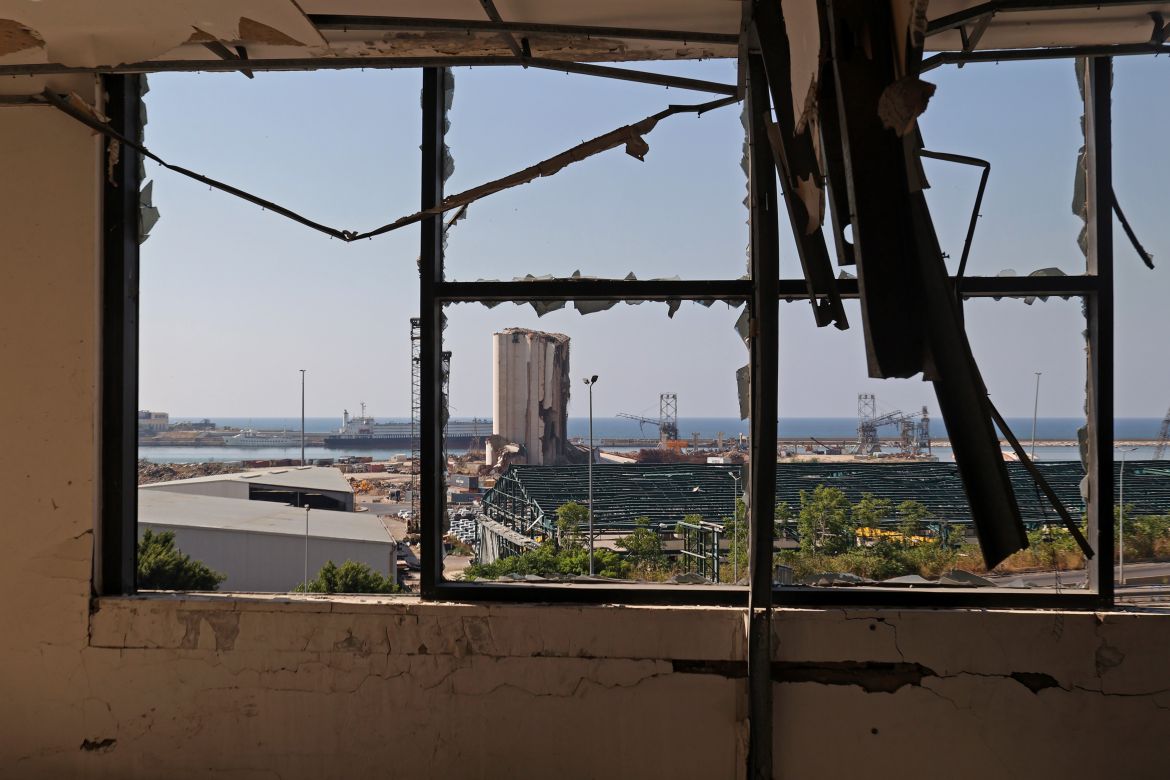In Pictures
Hundreds protest as Lebanon marks third anniversary of Beirut blast
Three years on, investigation is virtually at a standstill, leaving survivors still yearning for answers.

Lebanon marked three years since one of history’s biggest non-nuclear explosions rocked Beirut with hundreds of protesters marching alongside victims’ families to demand long-awaited justice.
Nobody has been held to account for the tragedy as political and legal pressures impede the investigation.
On August 4, 2020, the massive blast at Beirut’s port destroyed swathes of the Lebanese capital, killing more than 220 people and injuring at least 6,500.
Authorities said the disaster was triggered by a fire in a warehouse where a vast stockpile of ammonium nitrate fertiliser had been haphazardly stored for years.
Three years on, the probe is virtually at a standstill, leaving survivors still yearning for answers.
Protesters, many wearing black and carrying photographs of the victims, marched towards the port shouting slogans including: “We will not forget.”
“Our pain inspires our persistence to search for the truth,” said protester Tania Daou-Alam, 54, who lost her husband in the explosion.
Lack of justice “is the biggest example of rampant corruption in Lebanon, and we can no longer bear it”, she said.
The blast struck during an economic collapse, which the World Bank has called one of the worst in recent history and is widely blamed on a governing elite accused of corruption and mismanagement.
Some protesters waved a Lebanese flag covered in blood-like red paint while others carried an enormous flag covered in a written pledge to keep fighting for justice.
“I have the right to know why my fellow Lebanese were killed,” said protester Jad Mattar, 42.
Since its early days, the investigation into the explosion has faced a slew of political and legal challenges.
In December 2020, lead investigator Fadi Sawan charged former Prime Minister Hassan Diab and three ex-ministers with negligence.
But as political pressure mounted, Sawan was removed from the case.
His successor, Tarek Bitar, unsuccessfully asked lawmakers to lift parliamentary immunity for MPs who were formerly cabinet ministers.
The interior ministry has refused to execute arrest warrants that the lead investigator has issued.
In December 2021, Bitar suspended his probe after a barrage of lawsuits, mainly from politicians he summoned on charges of negligence.
Bitar has refused to step aside but has not set foot inside Beirut’s Justice Palace for months.
“Work [on the investigation] is ongoing,” a legal expert with knowledge of the case said, requesting anonymity because of the sensitivity of the issue.
Bitar is determined to keep his promise to deliver justice for victims’ families, the expert added.
On Thursday, 300 individuals and organisations, including Human Rights Watch (HRW) and Amnesty International, renewed a call for the United Nations to establish a fact-finding mission – a demand Lebanese officials have repeatedly rejected.
“If those responsible are not held accountable, it will put the country on a trajectory that allows this kind of crime to be repeated,” HRW’s Lama Fakih told the Agence France-Presse news agency at the protest.


